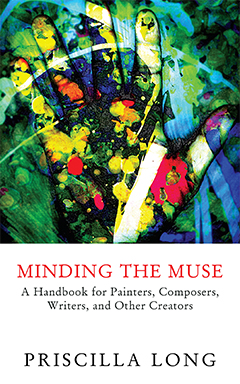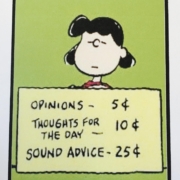How’s that working for you?
Remember Dr. Phil? When he was popular, my daughters were small and I was still watching Scooby Doo and Rugrats, but his tagline, “How’s that working for you?” was everywhere.
But this is what I do, and this is how I do it — anytime you defended your practice (in childrearing, in work, in  friendships, in getting to the gym), someone was bound to say, “How’s that working for you?”
friendships, in getting to the gym), someone was bound to say, “How’s that working for you?”
When I talk with other writers, they often get defensive. “But that’s not how I work.” “I can’t write every day.” “I have to be inspired before I can write.”
If that is working for you, then you should stick with it. I advocate writing every day, but if you can write only when you’re inspired, and you are getting poems written, and manuscripts completed, if you have finished work that you are sending out, then you should stick with your current habits and inclinations. You can also honor where you are in the process. Maybe you’re in the early stages, when you need to mull things over for a long time. Maybe for you that looks like taking long walks or baking cakes.
But if your current practice is not getting you what you want, then it’s time to tinker with it.
If you don’t write every day, try writing every day. Pick an arbitrary length of time (3o days?) and a length of time you can commit to keeping your butt in the chair (BIC, as Jane Yolen says).
If you usually don’t share your work, try sharing it. Go to an open mike, or send three poems or a short prose piece to a journal. (Check New Pages or The Review Review for venues.) Or do both. Just try it.
If you don’t have a writing group (“I have to write alone”) find one. I’m sure they’re advertised somewhere (Craig’s List? check your local library?). Find one or create one. Read Writing Alone or With Others or Minding the Muse for more ideas.
 If you usually wait for inspiration to strike you, try seeking it out instead. Buy a book of exercises and actually do them. Read the sorts of poems or stories you would like to write. Read one poem and write it out in your notebook. What moves could you make that would be similar? How can your moves be radically different?
If you usually wait for inspiration to strike you, try seeking it out instead. Buy a book of exercises and actually do them. Read the sorts of poems or stories you would like to write. Read one poem and write it out in your notebook. What moves could you make that would be similar? How can your moves be radically different?
If you usually write at home, try writing at a coffee shop or at a library. If you usually sit in a chair with your feet up and your notebook on your lap (my bad habit), try sitting at a desk. If you write on a computer, try writing in a notebook (and vice versa).
Experiment. See what works.



 It is never tidy, of course. After my friend spoke, a more conservative man from our congregation stood up and offered his list. (Well, as we say, “The body of Christ is very large.”)
It is never tidy, of course. After my friend spoke, a more conservative man from our congregation stood up and offered his list. (Well, as we say, “The body of Christ is very large.”) So, a little voice in my head is whispering, “Your readers know this already. EVERYONE knows it. YOU know it. There is no point to elaborating it again.”
So, a little voice in my head is whispering, “Your readers know this already. EVERYONE knows it. YOU know it. There is no point to elaborating it again.” assumption that it will eventually fall into place, and there isn’t any reason to worry or fuss. Small steps.
assumption that it will eventually fall into place, and there isn’t any reason to worry or fuss. Small steps. I found this image at
I found this image at 